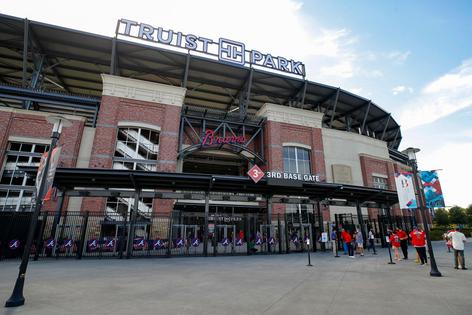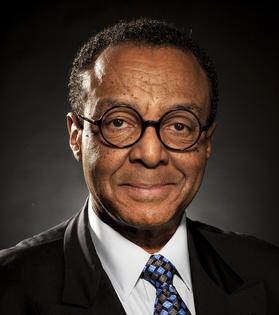Sports and Politics Don’t Mix, Yet They Keep Colliding
If the late Martin Luther King Jr. were to hold the Montgomery bus boycott today, would conservative politicians call him a “woke” activist pushing a repressive “cancel culture”?
That thought came to mind after Georgia’s Gov. Brian Kemp, former President Donald Trump and other Republican leaders denounced woke Democrats and cancel culture over Major League Baseball’s decision to move their 2021 All-Star Game out of Georgia to protest the Peach State’s new restraints on voting access.
Cancel culture, in case you’ve been quarantined on the moon for the past few years, refers to cultural and economic boycotts and general shunning and shaming of people or institutions over their political views or actions. Initiated by the political and social left, the term has been embraced, like “political correctness,” by the right as a cudgel against the left.
The outbreak of culture war in baseball has brought predictable moans about the pollution of our “national pastime” by politics. I sympathize, but as everyone should realize by now, politics is our national pastime too.
The modern intersection of sports and politics became quite clear three years ago when Fox News host Laura Ingraham responded to NBA players LeBron James’ and Kevin Durant’s criticism of then-President Trump with, “Shut up and dribble.” To me, the line articulated a quintessential example of right-wing cancel culture.
It also became the title of an illuminating Showtime documentary series about the long struggle of NBA stars and other Black athletes to find their political voice, dating back at least to the 1960s.
That struggle for a political voice seemed to reach the managerial level in 2016 when the NCAA joined boycotts against a controversial North Carolina law that removed anti-discrimination protections for lesbian, gay, bisexual and transgender people, and required transgender people to use bathrooms in public facilities that aligned with their sex at birth.
Six months later the NCAA “reluctantly” lifted its ban on holding championships in the state after the state’s legislature and governor repealed the so-called bathroom bill and replaced it with another that the NCAA said “minimally achieved” what they wanted.
Although the NCAA left the door open to future retracting of hosting opportunities on short notice, the agreement was a classic compromise: It fell short of fully satisfying either side.
That example illustrates the risk that the MLB is taking. As tactics for social or political change, boycotts are never a sure thing. They also exact a price, often from people who can afford it the least — such as the workers and shopkeepers who benefit from the All-Star Game in whatever city the MLB decides to hold it.
Even Atlanta Mayor Keisha Lance Bottoms and voting rights organizer Stacey Abrams, who came close to winning the gubernatorial election that Kemp won, strongly oppose the state’s new election law, yet — like Kemp — oppose the loss of jobs and revenue that the boycott brings.
And, unlike the climate around North Carolina’s bathroom bill, both sides of Georgia’s political divide may be hardening along party lines as the debate goes national with each side seeking to energize its base with big-name boosters, including ex-presidents. Barack Obama tweeted, “Congratulations to @MLB for taking a stand on behalf for voting rights for all citizens,” and compared the MLB’s boycott to Black former Atlanta Braves great Hank Aaron, “who always led by example.”
Donald Trump countered by calling — in a statement that others tweeted, since he’s been kicked off Twitter — for a boycott of the MLB for “going big time with WOKE CANCEL CULTURE and our sacred elections.”
Since boycotts of people or institutions over their political views fits well within the definition of “cancel culture,” woke or unwoke, it’s fair to say that Trump is not above some big-time canceling of his own, when it suits his purposes.
That’s an inevitable contradiction in the war against “cancel culture”: Everybody has something or someone that they want to “cancel,” which is why the nation’s founders tried to at least protect political speech from being infringed by lawmakers.
And that’s also why a lot of us look to sports as one place that plays by the rules and judges people fairly by their merits. That’s what a lot of people liked to think about pro baseball, even in the days when Black and white players weren’t allowed to compete on the same teams.
That, in my view, was an early form of fantasy baseball. Today’s intersection of sports with politics is not new. It’s just another example of the real world uneasily trying to get into the game.
========
(E-mail Clarence Page at cpage@chicagotribune.com.)
©2021 Clarence Page. Distributed by Tribune Content Agency, LLC.
(c) 2021 CLARENCE PAGE DISTRIBUTED BY TRIBUNE MEDIA SERVICES, INC.










